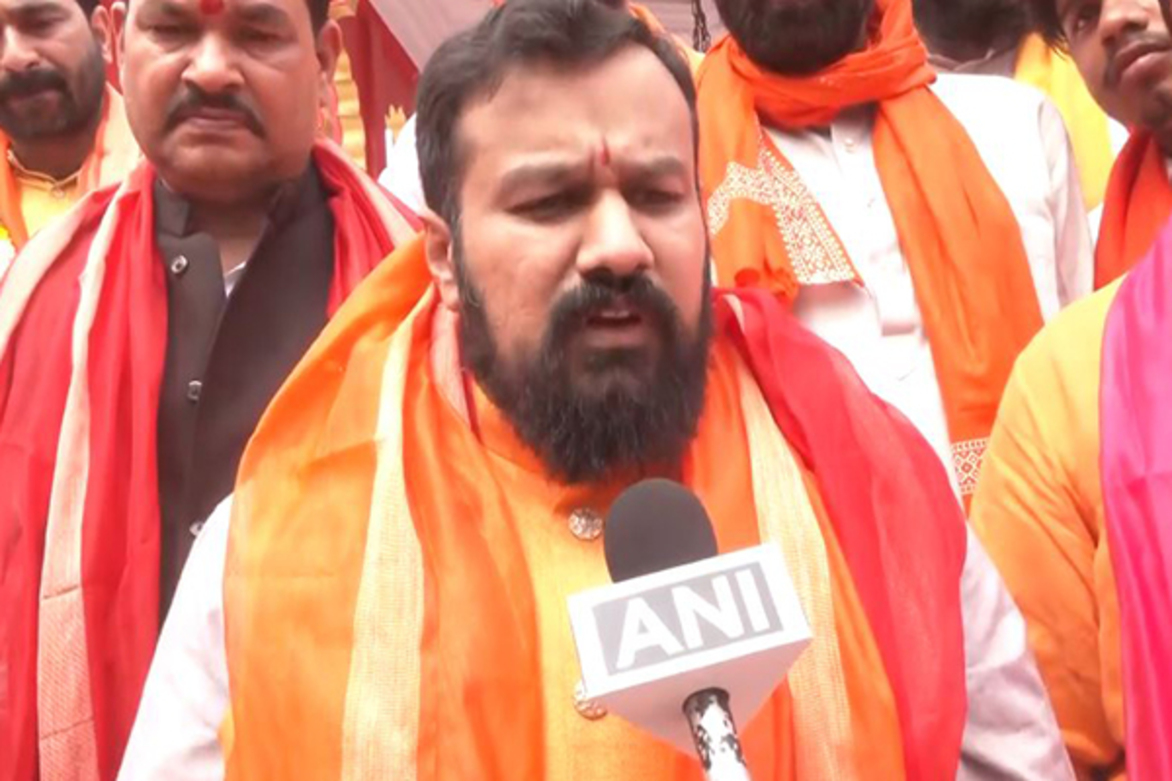"A step forward, repeals draconian provisions": Advocate Vishnu Jain on Waqf Bill
ANI
02 Apr 2025

Varanasi (Uttar Pradesh) [India], April 2 (ANI): Ahead of the tabling of the Waqf (Amendment) Bill, Advocate Vishnu Shankar Jain on Wednesday hailed it as a significant step forward, noting key changes such as the deletion of the 'Waqf by user' definition and amendments aligning the concept of Waqf with Islamic law.
Advocate Jain emphasised that while the bill is a step in the right direction as it repeals 'draconian provisions,' it is not yet complete and needs further improvements.
Jain said that his team had presented their suggestions to the Joint Parliamentary Committee (JPC), expressing confidence that these recommendations will be incorporated into the final version of the bill.
Speaking to ANI, Jain said, 'The Waqf Bill is likely to be presented in the Lok Sabha today. This bill has been introduced after extensive legislative exercises and consultations with various stakeholders.'
'The Waqf Amendment Act 2025 has brought very important changes and legislative amendments; for example, the user's definition of Waqf has been totally deleted. The concept and definition of Waqf, which was not in consonance with the Islamic law, which was existing in the earlier Waqf law 1995, has been amended,' he said.
'Many checks and balances have been brought in so far as the survey exercises are concerned. For example, the draconian provision, which we all know is Section 40, which gives unlimited powers to the Waqf board to declare any property as Waqf property, has also been repealed. Apart from that, one qualification under Section 85, a composition of Waqf that one person has to be an Islamic scholar, has also been deleted,' he stated.
'The present amendment bill also repeals various other draconian provisions, such as Sections 107, 108, and 108 (A). This amendment bill is a step forward, I must say, but it is not complete. There are certain areas that need to be worked on, and for that, we had given our representation to the JPC, and I feel that in the future, that will be considered,' said Jain.
The Advocate also paid obeisance at a temple in Gorakshnath Math, Varanasi and offered prayers before tabling of the bill in parliament.
Meanwhile, Bharatiya Janata Party (BJP) MP Jagdambika Pal, who was the Chairman of the JPC on the Waqf Amendment bill on Wednesday, said that the Bill, which is going to be tabled in the Parliament for passing, would benefit poor and Pasmanda (backward) Muslims.
Labelling it a 'historic day,' Pal said that the Joint Parliamentary Committee's (JPC) hard work, which took stakeholders in several states in confidence, has paid off. He added that JPC meetings were held, and opposition was heard for eight hours every day.
As the parliament is set to convene again today, the legislative business suggests that Union Parliamentary Affairs Minister Kiren Rijiju will move the Waqf Amendment Bill of 2025, which aims to amend the Waqf Act of 1995, for passing.
The Bharatiya Janata Party (BJP) and Congress are issuing whips to their MPs to ensure their presence in the House.
With the parties in the ruling BJP-led National Democratic Alliance and the Opposition INDIA bloc showing no signs of bipartisan consensus building, the outcomes may be decided on the majority numbers on the floor.
The bill will be tabled after today's Question Hour for consideration and passing. Following that, an 8-hour discussion will be held, subject to an increase.
The bill was presented in the Lok Sabha in August of last year, following which a Joint Parliamentary Committee was formed under Jagdambika Pal's leadership for further consideration.
The bill aims to amend the Waqf Act of 1995 to redress the issues and challenges in regulating and managing Waqf properties.
The Amendment Bill seeks to improve the administration and management of waqf properties in India. It aims to overcome the shortcomings of the previous Act and enhance the efficiency of Waqf boards by introducing changes such as renaming the Act, updating the definitions of waqf, improving the registration process, and increasing the role of technology in managing waqf records.
The Waqf Act of 1995, enacted to regulate Waqf properties, has long been criticised for issues such as mismanagement, corruption, and encroachments. (ANI)
